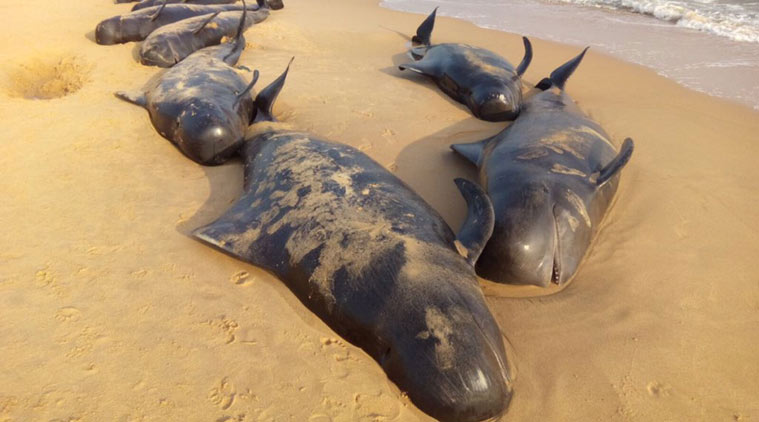Jay Mazoomdaar is an investigative reporter focused on offshore finance, equitable growth, natural resources management and biodiversity conservation. Over two decades, his work has been recognised by the International Press Institute, the Ramnath Goenka Foundation, the Commonwealth Press Union, the Prem Bhatia Memorial Trust, the Asian College of Journalism etc. Mazoomdaar’s major investigations include the extirpation of tigers in Sariska, global offshore probes such as Panama Papers, Robert Vadra’s land deals in Rajasthan, India’s dubious forest cover data, Vyapam deaths in Madhya Pradesh, mega projects flouting clearance conditions, Nitin Gadkari’s link to e-rickshaws, India shifting stand on ivory ban to fly in African cheetahs, the loss of indigenous cow breeds, the hydel rush in Arunachal Pradesh, land mafias inside Corbett, the JDY financial inclusion scheme, an iron ore heist in Odisha, highways expansion through the Kanha-Pench landscape etc. ... Read More
Mysterious death on the shore: Some reasons for mass whale beaching in TN
Whale stranding is not uncommon and has been recorded since 300 BC. While dead individuals often naturally wash up ashore, the phenomenon of mass beaching still baffles scientists.
 Whales living in large social groups — such as the pilot whales that beached on Monday and Tuesday — are more susceptible to mass beaching. (Express Photo)
Whales living in large social groups — such as the pilot whales that beached on Monday and Tuesday — are more susceptible to mass beaching. (Express Photo)
The mass stranding of more than a 100 whales and the death of at least 45 along a 15 km stretch on a Manpad beach in Tamil Nadu’s Tuticorin (or Thoothukudi) district presented a shocking spectacle on Tuesday. On Wednesday, the Central Marine Fisheries Research Institute (CMFRI) confirmed the death of at least another 12 whales. Interestingly, Tuticorin had witnessed a similar beaching 40 years ago, and the reasons are no clearer now.
Whale stranding is not uncommon and has been recorded since 300 BC. While dead individuals often naturally wash up ashore, the phenomenon of mass beaching still baffles scientists.
Typically, whales living in large social groups — such as the pilot whales that beached on Monday and Tuesday — are more susceptible to mass beaching. A pod (a group of marine mammals) can strand itself by following a disoriented leader or volunteer into shallow waters in a suicidal rescue mission if a member accidentally beaches itself.
Other ‘natural’ causes for whale beaching include following prey-rich water currents towards land or panicking at the presence of a mega predator such as a killer whale. Scientists also blame gently sloping shorelines that can deceive whales dependent on echolocation for navigation.
Active SONAR (sound navigation and ranging) — low-frequency sound released under water to detect marine vehicles — can have a similar or worse impact. The sound waves can cause internal bleeding in ear and brain tissues, killing or disorienting whales which may end up stranded. Some scientists also argue that whales may interpret the SONAR sound as an approaching predator, triggering a panic reaction and subsequent beaching.
Climate change or unnatural weather phenomena can affect whales. In one recorded event, after a strong El Nino in 1982-83, a resident population of short-finned pilot whales apparently disappeared from the areas along southern California.
In fact, even though the animals are found in the deep, warm waters of the Indian, Pacific and Atlantic oceans, short-finned pilot whales are known for frequent stranding. Their pods of up to 50 animals form ranks that can stretch for over a kilometre. This may explain how dozens beach themselves across several kilometres but it is not clear why they approach shallow waters.
In India, the first recorded beaching of short-finned pilot whales dates back to 1852 when a pod was stranded near Kolkata. Tuticorin also witnessed a mass stranding of 147 animals in 1973. Repeated beaching in one area may suggest a flat slope — a drop of mere 5-17 metres in 3 kilometres from Manpad beach, for example — or a current factor unique to the shoreline. Then again, there has been no mass beaching at Tuticorin since then, until Monday.
So far as the role of SONAR is concerned, it may be worthwhile to note that the last stranding in Tuticorin occurred not long after the 1971 war that might have necessitated intense and prolonged scanning of these waters.
Photos


- 01
- 02
- 03
- 04
- 05




































